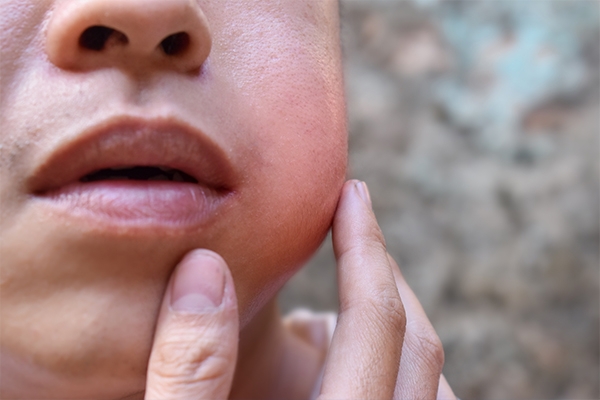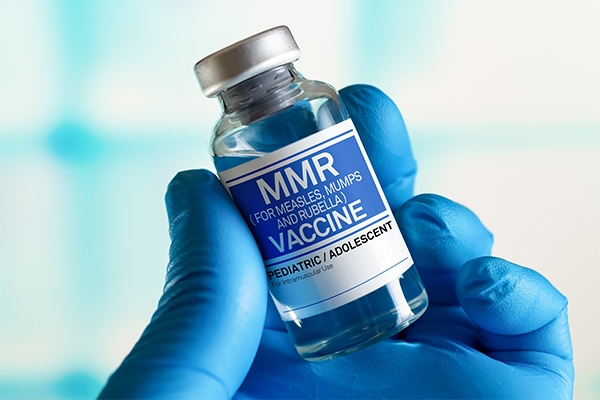Mumps

Cases of children suffering from mumps in Indonesia have increased drastically in recent months. The Indonesian Pediatrician Association (IDAI) reported that by mid-November 2024, mumps cases had reached more than 6,000 cases.
Mumps used to be a very common disease in children. After the mumps vaccine became available in 1967, cases dropped drastically. However, mumps outbreaks continue to occur, especially among people who have had close contact over a long period.
The MMR vaccine (measles, mumps, and rubella) can protect you from this disease. Although it is a mild disease, mumps can cause serious complications, such as
- arthritis: inflammation of the joints.
- deafness: permanent hearing loss.
- encephalitis: inflammation of the brain.
- meningitis: inflammation of the tissue covering the brain and spinal cord.
- oophoritis: inflammation of the ovaries.
- orchitis: inflammation of the testicles.
- pancreatitis: inflammation of the pancreas.
- thyroiditis: inflammation of the thyroid gland.
What is mumps?
Mumps is an infectious disease caused by the Mumps virus, which is included in the paramyxoviruses family of viruses. This virus infects the parotid glands (the glands that produce saliva), causing swelling.
Mumps can be transmitted through droplets from saliva or saliva that comes out of the mouth or nose of a sufferer who coughs and sneezes.
Early symptoms of mumps are usually mild. Many people do not even show any symptoms and do not know they are infected. The incubation period (the time between infection and illness) ranges from 7-25 days.
Early symptoms that may arise are fever, headache, muscle aches accompanied by pain in the jaw angle area, ear pain that worsens when chewing or talking, fatigue/weakness, decreased appetite, and pain when swallowing.
A few days later, swelling of the parotid glands may occur, causing puffed cheeks and a swollen jaw. This swelling can affect one or both sides of the face.
Who gets mumps?
Mumps most often affects children aged 2–12 who have not received the MMR vaccine. However, adolescents and adults can get mumps even if they have been vaccinated. This is because immunity to the vaccine weakens with time. The best way to protect yourself from mumps infection is to get fully vaccinated.
How is it treated?

There is no specific treatment for mumps. The sickness usually goes away on its own within a few weeks. To avoid spreading the infection, children and adults who are infected with mumps should stay inside and self-isolate for around five days.
Treatment for mumps focuses on relieving symptoms so that the sufferer feels comfortable. The steps below can help manage symptoms:
- Drink plenty of water.
- Gargle with salt water.
- Avoid acidic foods that trigger salivation.
- Compress the swollen area with warm or cold water to relieve pain.
- Eat soft foods so that you don't have to chew too much.
- Take fever-reducing or pain-relieving medication.
Prevention

Mumps is a disease that is very easy to prevent because of the effectiveness of the MMR vaccine. Here are some steps that can be taken to prevent it:
1. MMR vaccination protects the body from measles, rubella, and mumps.
Children often receive two doses of MMR. The first dose is given at the age of 15–18 months, and the second dose is at the age of 5-7 years.
In adults and the elderly, the MMR vaccine is given in two doses with a minimum interval of 28 days.
2. Anyone above the age of 6 months who plans to travel internationally must have a mumps vaccination first. This includes:
- Infants aged 6–11 months need one dose of the MMR vaccine.
- Infants under the age of 12 months who have received one dose of MMR vaccine need two additional injections between the ages of 12 and 15 months, with a minimum interval of 28 days.
- Children aged 12 months or older will need two MMR vaccinations, with a minimum interval of 28 days.
- Adolescents or adults need two doses of the MMR vaccine, with a minimum interval of 28 days.
3. Wash your hands diligently with soap and running water.
4. Do not share bathrooms or eating utensils with sufferers.
5. Implement cough etiquette, such as covering your mouth and nose with a tissue when coughing or sneezing.
**
Mumps can be prevented by practicing good hygiene and getting a complete MMR vaccination.
If you are planning to travel abroad or need a vaccine for your child or yourself, visit GWS Medika Clinic, a trusted health clinic in Jakarta, that offers safe and comfortable vaccination services.



